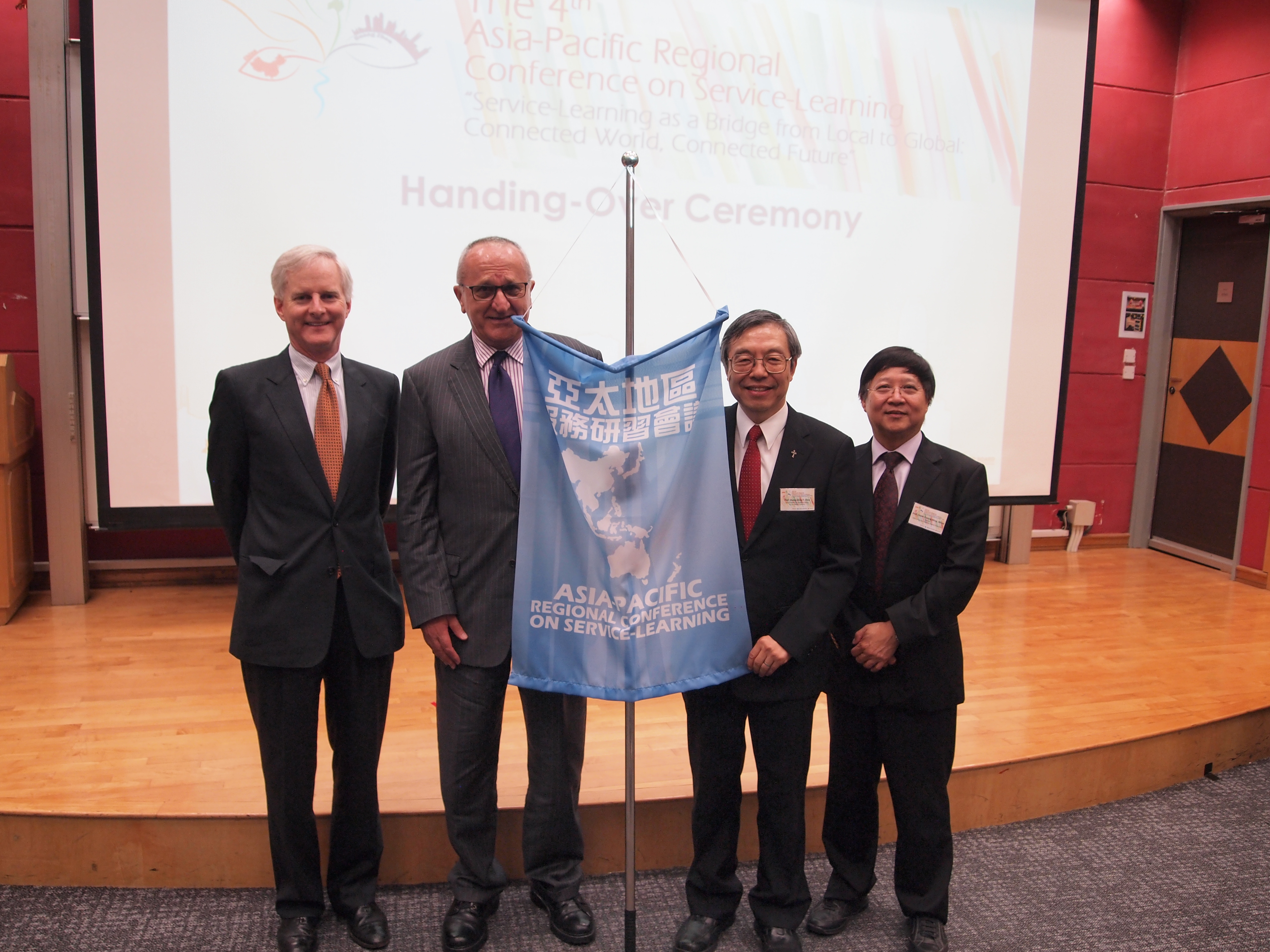Location
MD214, Paul Cardinal Shen Medical Building, Fu Jen University
Start Date
29-5-2015 3:00 PM
End Date
29-5-2015 4:10 PM
Description
To exercise service leadership in educational community, university students can creatively design a variety of service activities that challenge and excite school students on their personal and social responsibility in environmental sustainability. The purpose of this paper is to demonstrate the importance of empowerment in fostering creativity in service learning. This is a case study of a Leadership in Sustainability as part of Service Leadership Education in the General Education programme in a public university in Hong Kong. While the question "Whose responsibility is sustainability?" is commonly raised in Hong Kong, it is commonly perceived that it lies on the government and business corporations. Little effort is directed to promoting personal accountability for environmental sustainability. The aim of this course is to increase personal accountability on environmental sustainability issues through learning in action. Six groups of university students whom served as change agents worked on the outreach projects to promote sustainability targeting both the primary and secondary school sectors. As service leaders, they were tasked to deliver an event or a series of activities that was not informative, educational with fun and excitement to the target groups of their choice. During the planning and implementation stages, the students employed a variety of strategies and derived creative methods to engage and excite the target students in the learning process. To promote motivation and creativity, financial and technical advice were provided, and autonomy was assured to the project groups. Moving beyond the passive mode of learning, the university students added the elements of 'Having fun' and ‘Being challenged' in the events and activities to create engaging learning moments. Evaluations of learning effectiveness were conducted as part of the service cycle, i.e. plan, do, reflect and report. Review of students' outputs indicated that the target groups and the students both reported attaining more understanding of environmental sustainability issues, higher levels of sensitivity, and greater sense of personal accountability towards these issues. In preparing university students as future leaders, the outreach projects provided an opportunity for them to exercise their creativity, knowledge, skills, and leadership competencies in delivering rewarding events to the public.
Recommended Citation
Hodgson, P., & Cheung, Y. H. (2015, May). Empowering creativity in services in an educational community. Paper presented at the 5th Asia-Pacific Regional Conference on Service-Learning: Love Journey: Community Engagement through Service-Learning, Fu Jen Catholic University, Taiwan.
Included in
Empowering creativity in services in an educational community
MD214, Paul Cardinal Shen Medical Building, Fu Jen University
To exercise service leadership in educational community, university students can creatively design a variety of service activities that challenge and excite school students on their personal and social responsibility in environmental sustainability. The purpose of this paper is to demonstrate the importance of empowerment in fostering creativity in service learning. This is a case study of a Leadership in Sustainability as part of Service Leadership Education in the General Education programme in a public university in Hong Kong. While the question "Whose responsibility is sustainability?" is commonly raised in Hong Kong, it is commonly perceived that it lies on the government and business corporations. Little effort is directed to promoting personal accountability for environmental sustainability. The aim of this course is to increase personal accountability on environmental sustainability issues through learning in action. Six groups of university students whom served as change agents worked on the outreach projects to promote sustainability targeting both the primary and secondary school sectors. As service leaders, they were tasked to deliver an event or a series of activities that was not informative, educational with fun and excitement to the target groups of their choice. During the planning and implementation stages, the students employed a variety of strategies and derived creative methods to engage and excite the target students in the learning process. To promote motivation and creativity, financial and technical advice were provided, and autonomy was assured to the project groups. Moving beyond the passive mode of learning, the university students added the elements of 'Having fun' and ‘Being challenged' in the events and activities to create engaging learning moments. Evaluations of learning effectiveness were conducted as part of the service cycle, i.e. plan, do, reflect and report. Review of students' outputs indicated that the target groups and the students both reported attaining more understanding of environmental sustainability issues, higher levels of sensitivity, and greater sense of personal accountability towards these issues. In preparing university students as future leaders, the outreach projects provided an opportunity for them to exercise their creativity, knowledge, skills, and leadership competencies in delivering rewarding events to the public.
